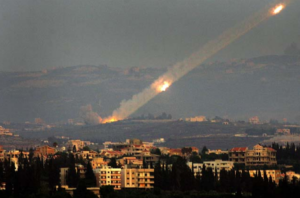Welcome to Extreme Investor Network, where we provide unique insights and analysis on the current economic landscape. Today, we’re diving into the complex political dynamics of the Middle East, specifically the tensions between Iran, Israel, and the surrounding countries.
Contrary to Western media reports, Saudi Arabia and Jordan actually support Israel behind the scenes due to their shared concern over Iran’s threat to regional stability. Despite differing public opinions, these countries recognize the danger Iran poses with its Shiite ideology that prioritizes religious rule over secular governance.
As the world anticipates Israel’s response to Iran, the focus remains on Iran’s nuclear facilities and energy production. The challenge lies in the deep underground placement of these facilities, making conventional attacks ineffective. However, the possibility of the US lending bunker-type weapons to Israel could change the dynamic and potentially draw in other global powers like China and Russia.
Attacking Iran’s oil facilities would undoubtedly impact global oil prices, a situation the Biden Administration seeks to avoid leading up to the election. This hesitation has resulted in a pause in Israel’s response, with a focus on targeting nuclear development while navigating the delicate balance of preventing Iran’s nuclear capabilities from advancing.
Looking ahead, the Biden Administration’s approach to national security has raised concerns, with over 1,000 known terrorists entering the country. As we approach October 7th, the potential for domestic terrorist attacks increases, putting pressure on both the US and Israel to address security threats effectively.
Stay tuned to Extreme Investor Network for more in-depth analysis and expert commentary on the evolving geopolitical landscape and its impact on global markets.

